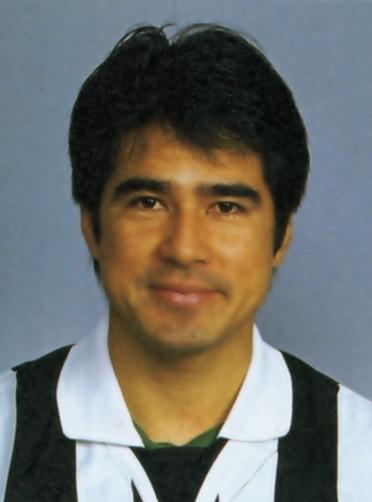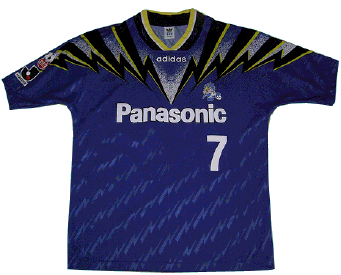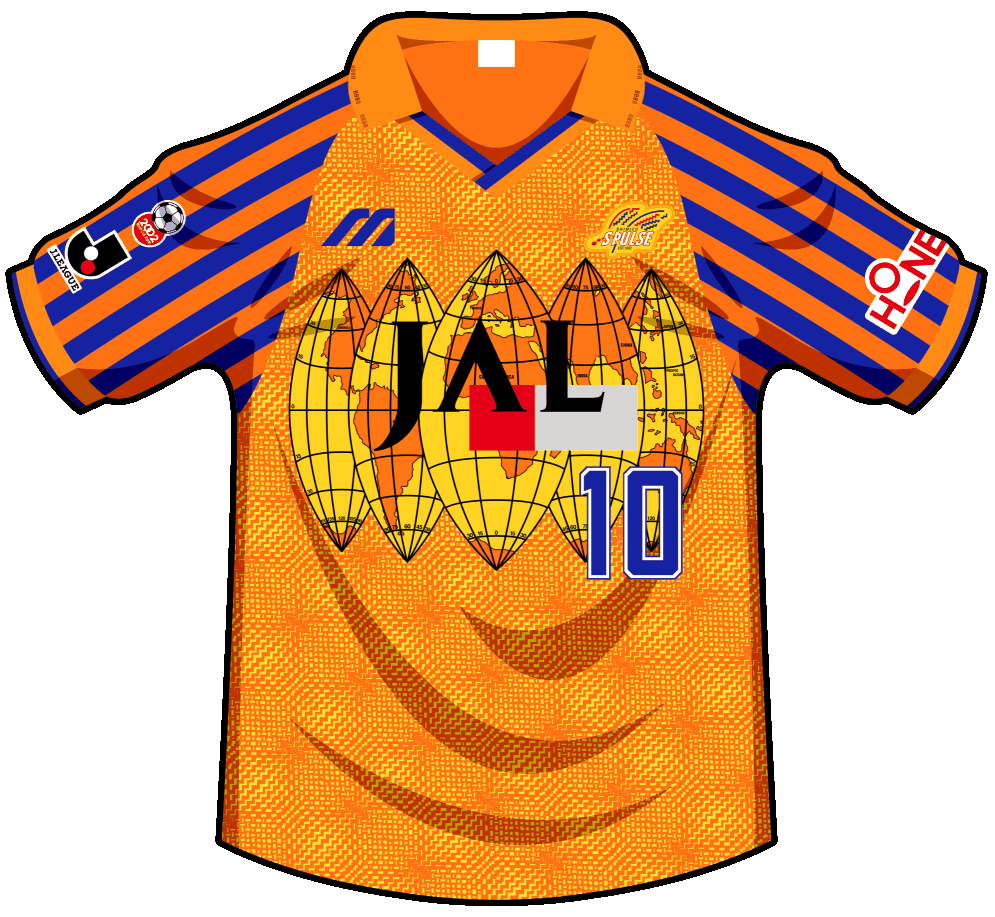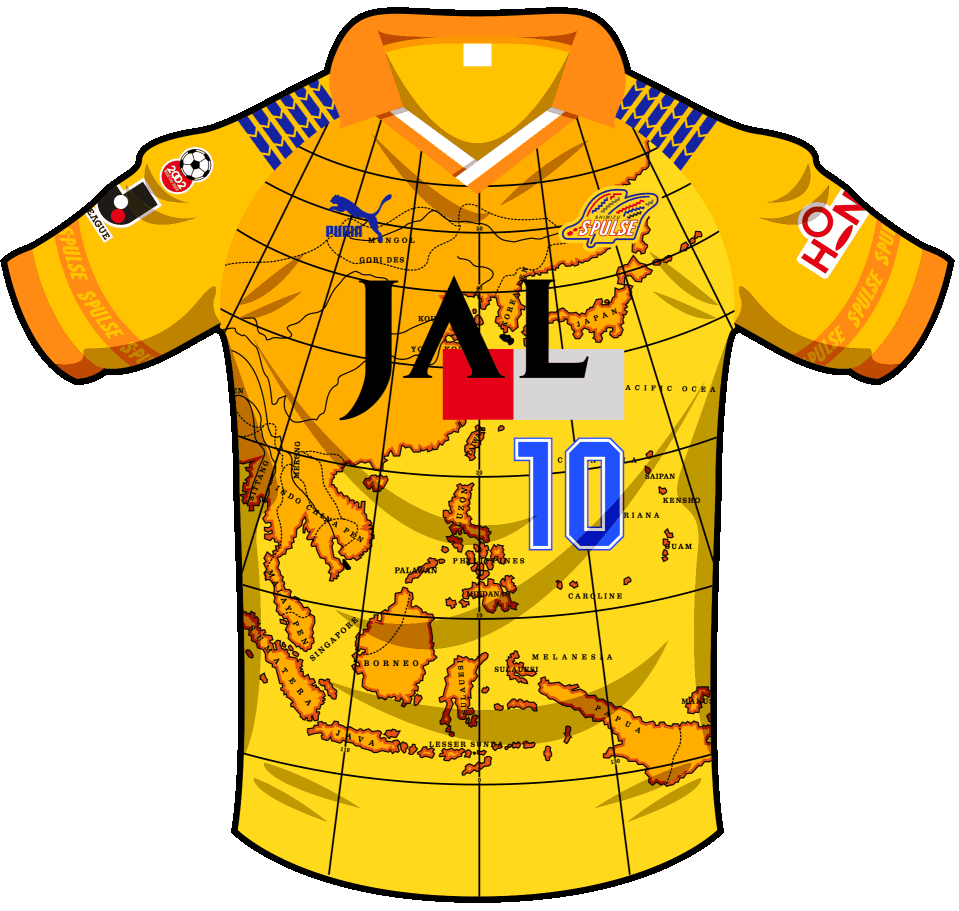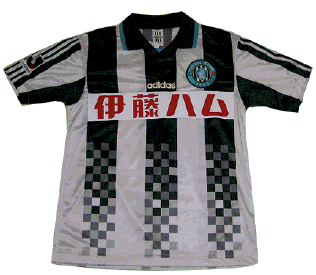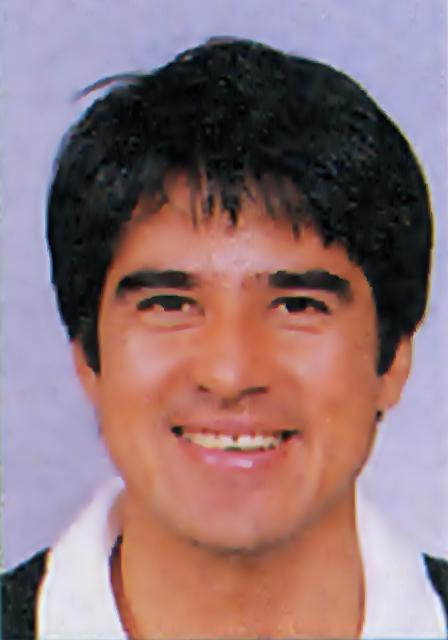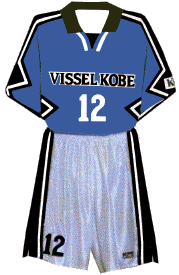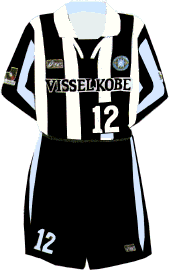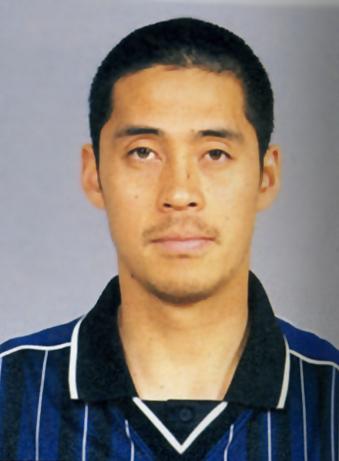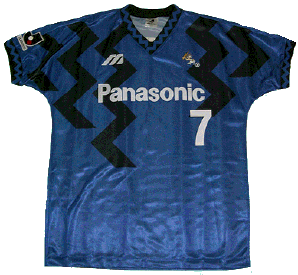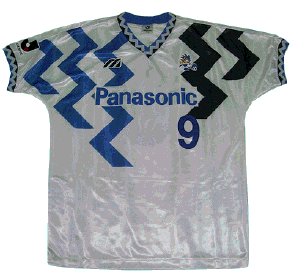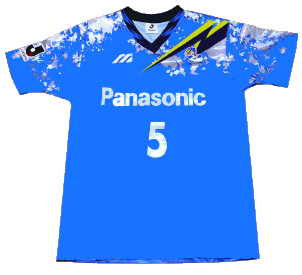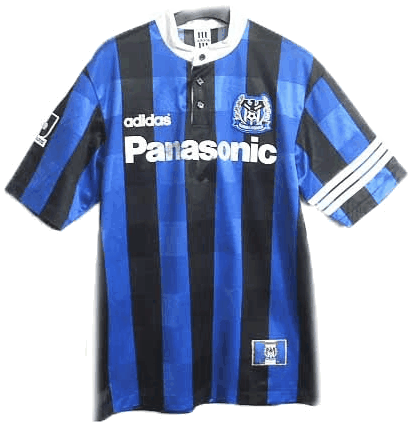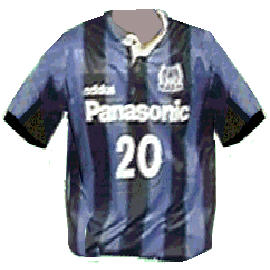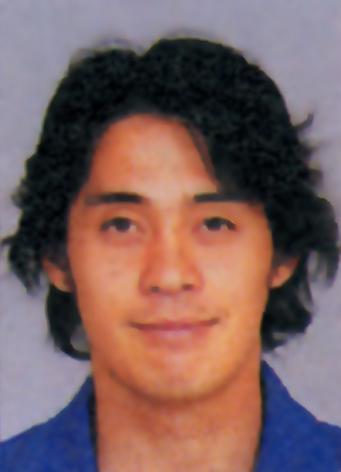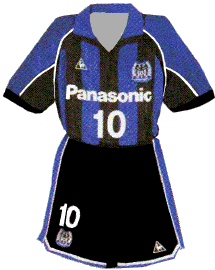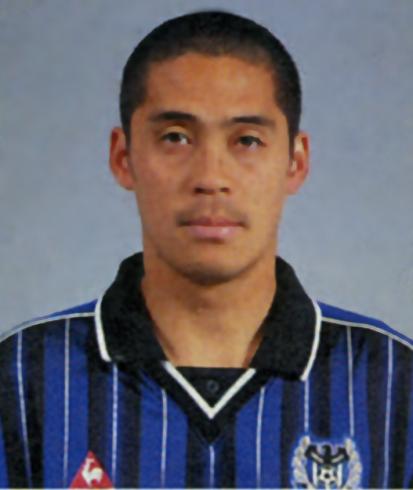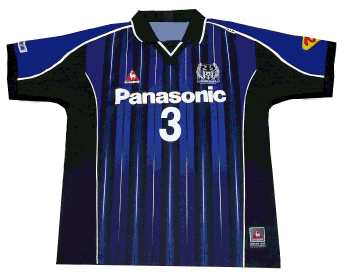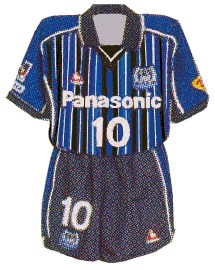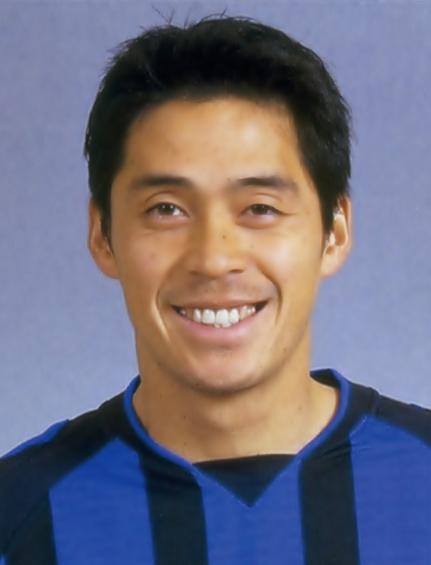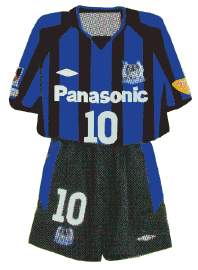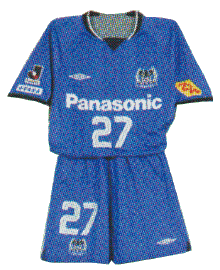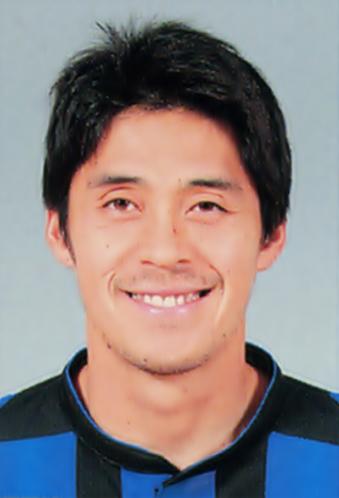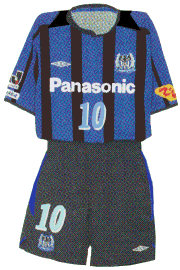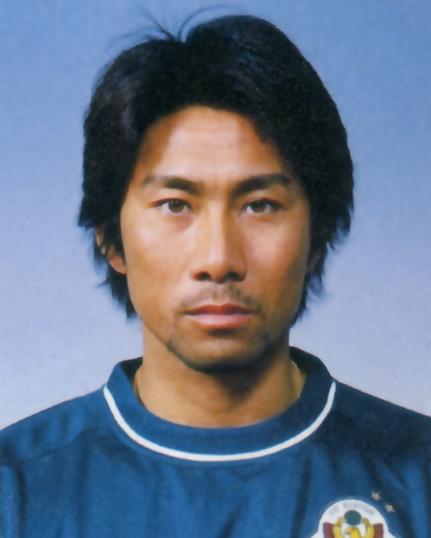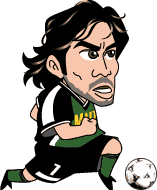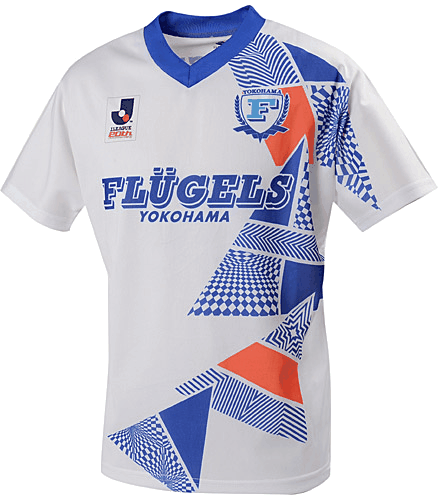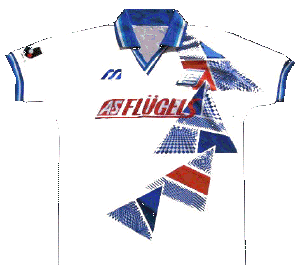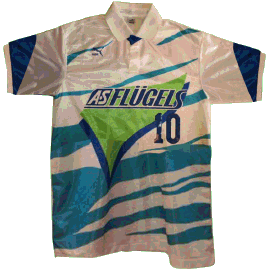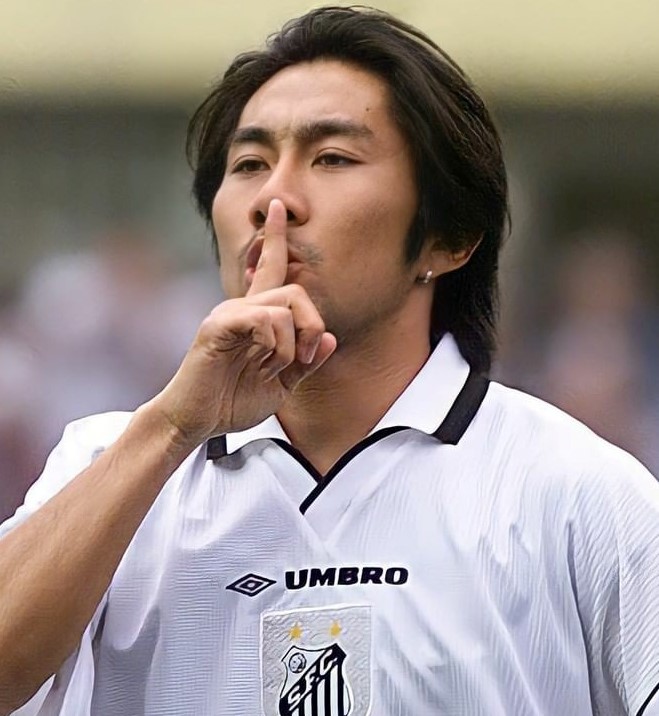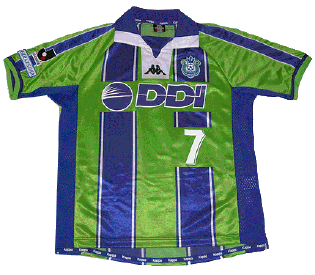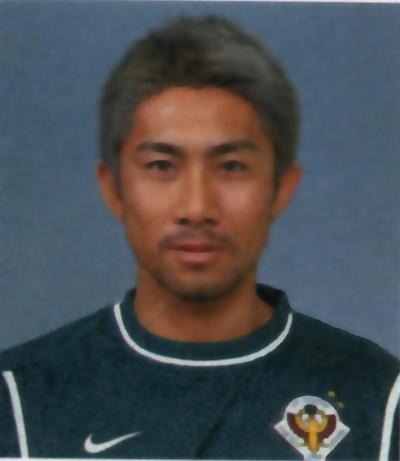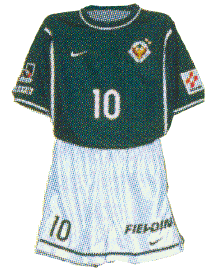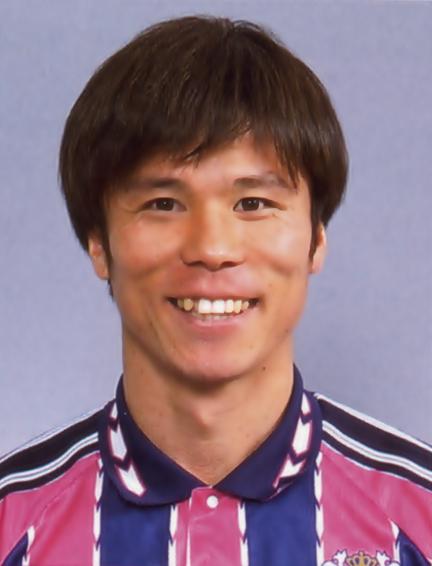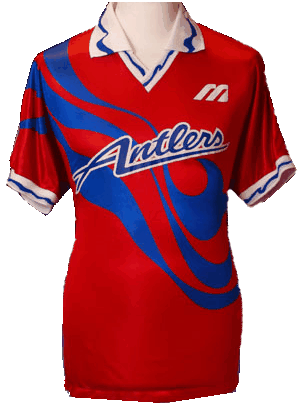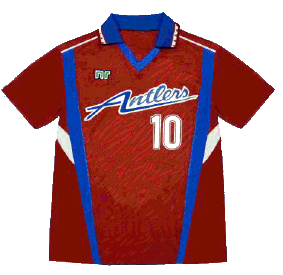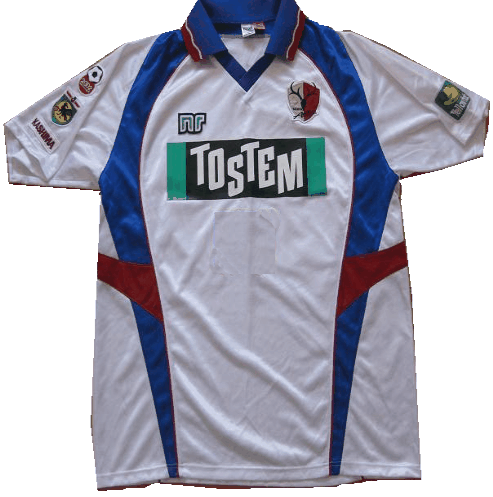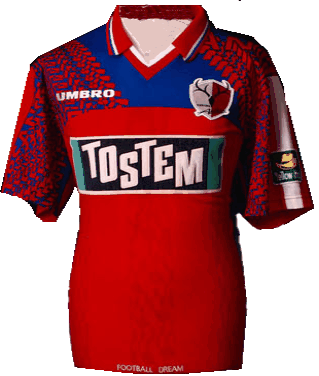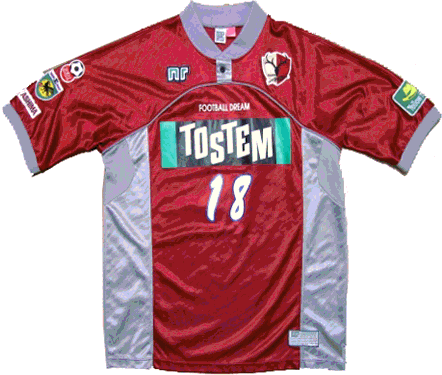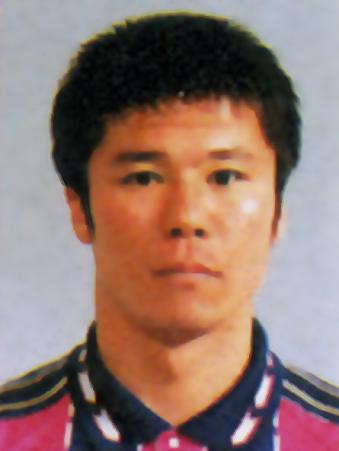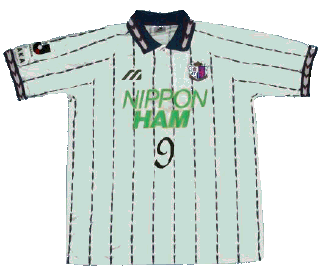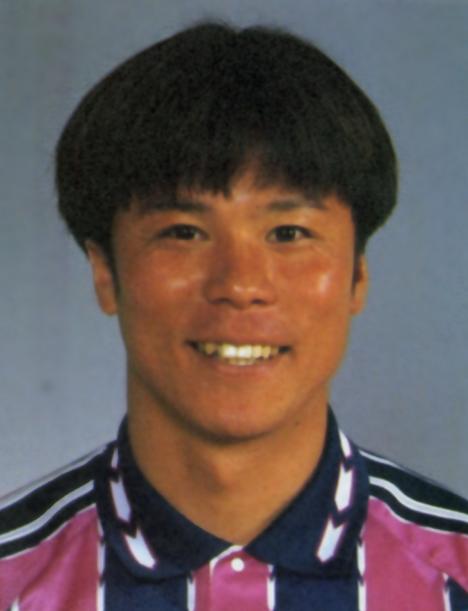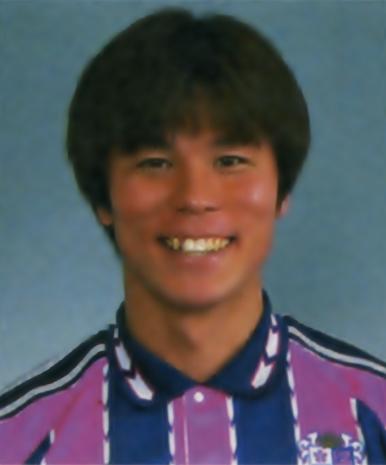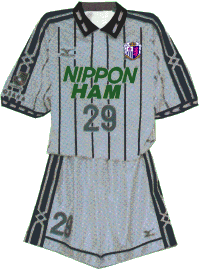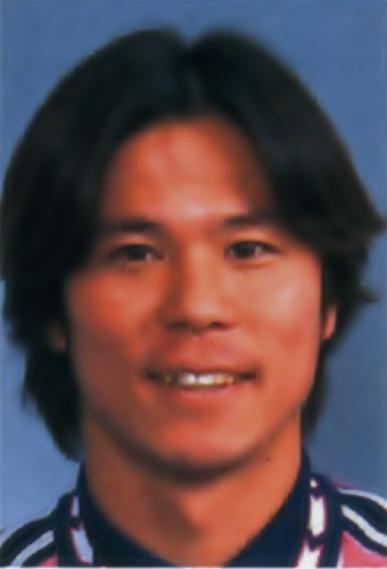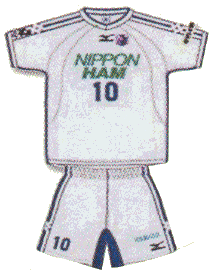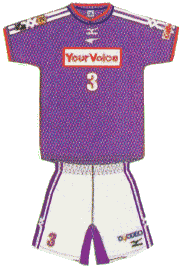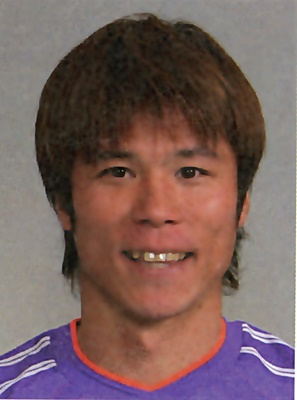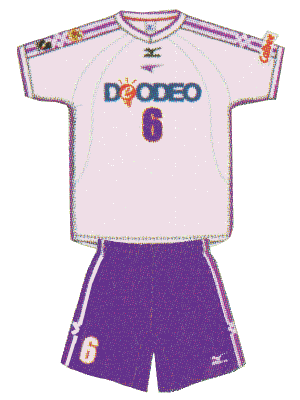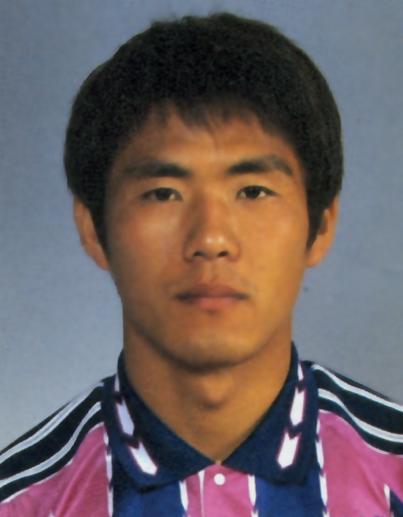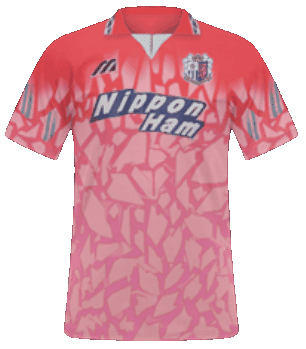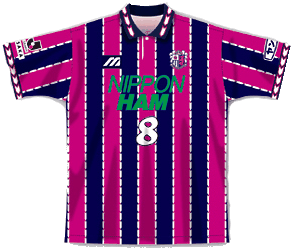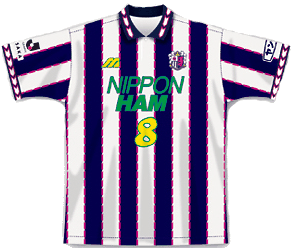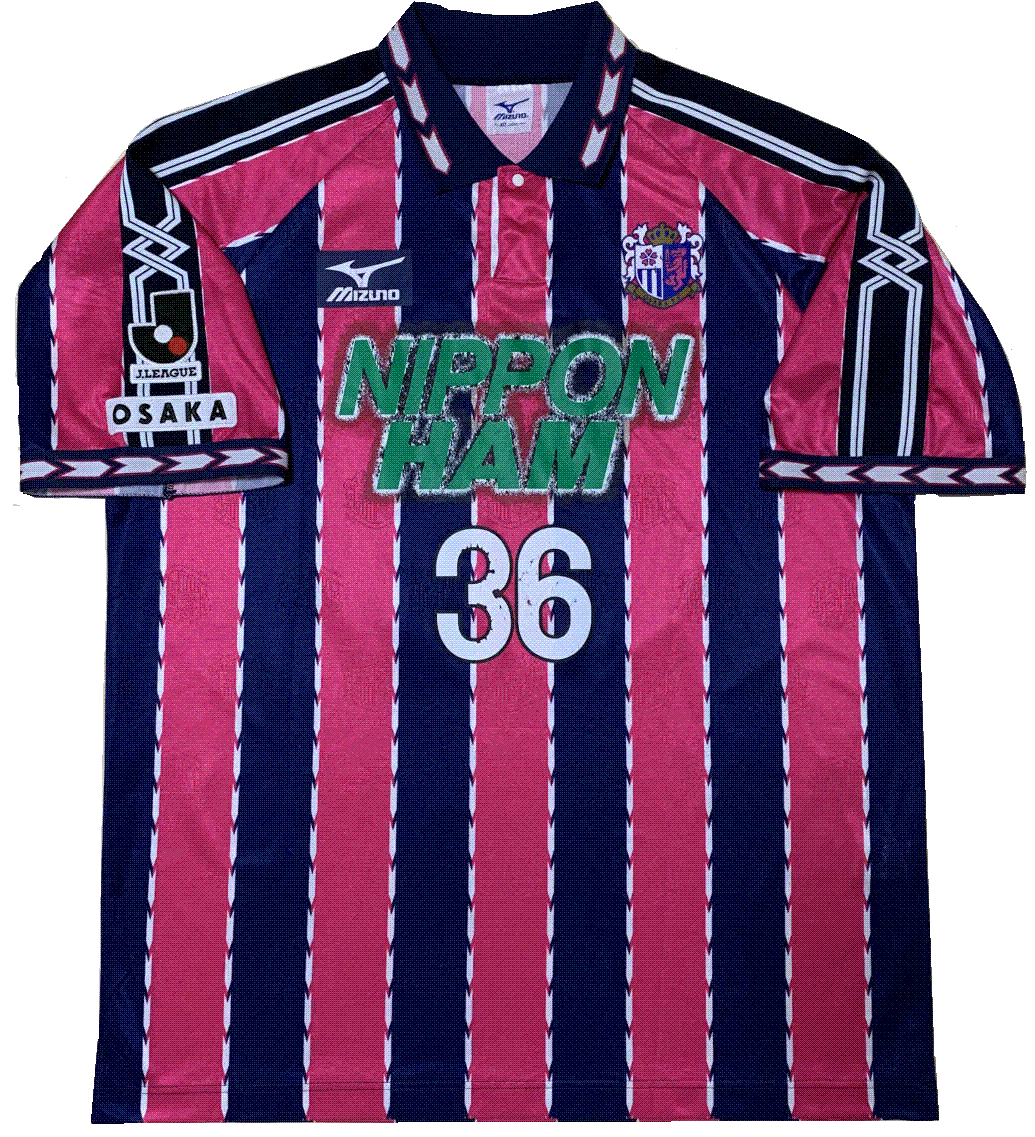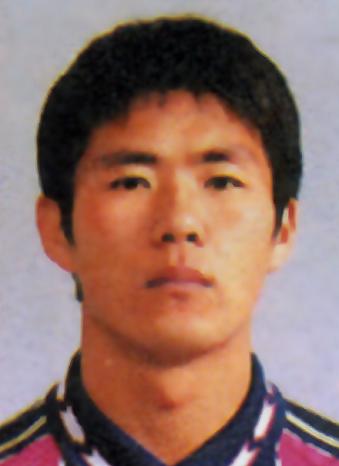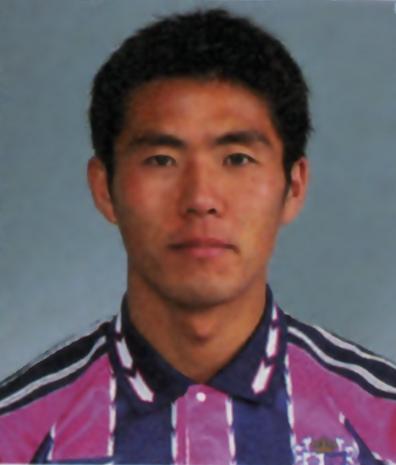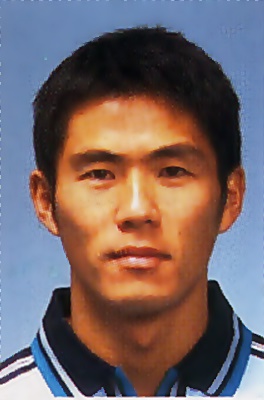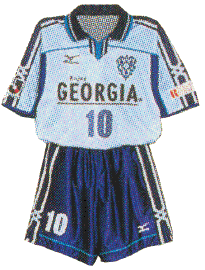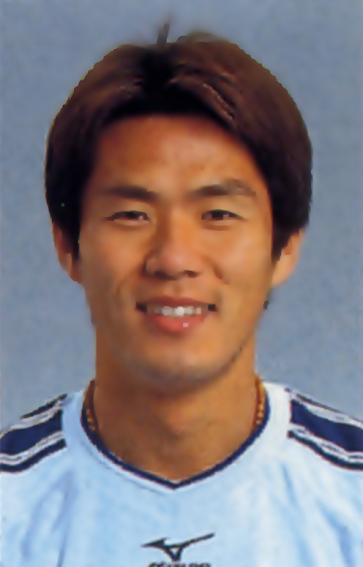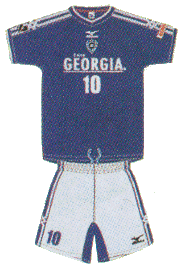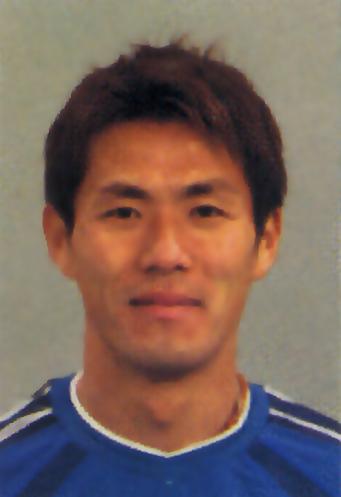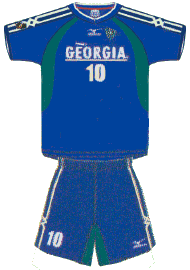Bio
|
|
|||||||||||||||||||||||||||||||||||||||||||||||||||||||||||||||||||||||||||||||||||||||||||||||||||||||||||||||||||||||||||
BioMasanobu Matsunami was never the most talented striker in Japan, nor the most prolific. Indeed, in a league where Brazilians or other foreign players are usually brought in to provide most of the scoring, Matsunami spent much of his career in the role of late substitute -- the player who comes off the bench to provide an extra bit of offensive presure down the stretch. Only once in his career did he make over 30 appearances, and that was in his peak year - 1997 - when he tallied thirteen times. Even as a "late sub", though, Matsunami took a relatively limited role and made the most of it, establishing himself as one of the most widely recognised and most popular players in Osaka, even if he wasnt one of the most prolific. From the start of his 13-year career at Gamba Osaka, Matsunami seemed to have a gift for catching the eye of fans, with his hard-charging work ethic and flashy feints and flourishes. Among other things, he pioneered the "upturned collar" look, which was later imitated by national team strikers such as Akinori Nishizawa and Naohiro Takahara. During the late 90s, uniforms with overlapping (and different-colored) collars were in fashion, and most J.League teams wore kits with collars at least for a season or two. One story has it that Matsunami was feeling a bit cold, at one late-season match, and during a stoppage in play, turned up the collar of his uniform to ward off the chilly wind, which kept blowing down his neck. An opposing defender made some dismissive remark along the lines of: "hey, are you trying to look cool with your turned-up collar?". Even in a reserve role, Matsunami managed to pile up close to 300 appearances in his career, and tallied 45 goals, most as a late substitute. Having remained faithfully at Gamba throughout his career, he received a warm send-off in his final match, which provided a fitting capstone to his career, as Gamba clinched their first J.League title on that very day. In years to come, when a cocky striker comes onto the pitch with turned-up collar, signalling his intention to score the winning goal, long-time J.League fans will remember the player who set the whole trend in motion.
|
|
||||||||||||||||||||||||||||||||||||||||||||||||||||||||||||||||||||||||||||||||||||||||||||||||||||||||||||||||||||||||||||||||||||||||||
BioThe story of Masakiyo Maezono is perhaps the greatest melodrama in the history of the J.League. He entered professional football a year before the J.League started, and was one of the league's most promising young players in its first two or three years, as a member of the Yokohama Flugels. Christened the "golden boy" of Japanese sport in 1996, after leading Japan's Olympic team to victory over Brazil in Atlanta, Maezono came home to a hero's welcome. His face seemed to be everywhere, on commercials, licensed goods, and every sports newspaper in the country. He won a big raise and a high-profile transfer to Verdy Kawasaki at the end of the 1996 season, and it looked like he was a big star in the making. Maezono was brought into the national team, and during 1996 and 97, when the team was fighting for qualification the 1998 World Cup, he received 22 caps and scored four goals for Japan. As the World Cup year began, the golden boy still seemed to retain his lustre . . . No one is quite sure what happened next. There are a number of "explanations, many of which probably have an element of truth. Strongest of all were the rumours that Maezono had a hidden drinking problem, which was badly exacerbated by the "party hearty" atmosphere at Verdy. He fell in with a crowd of hard-drinking, pub-crawling, womanizing teammates and basically drank himself into the gutter. After scoring just 3 goals in 1998, and being told by Verdy that he was no longer needed, Maezono tried to revive his career with a move to Brazil. But despite a big contract and a favourable welcome at Santos, Maezono proved to be a big flop in Brazil as well. He soon was shipped off to second-division club Goias, and at the end of 1999 the tiny Bahia club also found him to be useless baggage. Maezono crawled back to Japan as a tarnished has-been, the sparkle of his midfield play long since faded and his reputation as the "golden boy" in tatters.
After a semi-productive stint at J2 club Shonan Bellmare, Maezono was brought back into the Verdy fold in 2001, in an effort by the former champions to resurrect their golden years. But Maezono proved to be as faded as Verdy's dreams of glory, and the club released him in mid-2002 with disappointment among all concerned. Maezono tried to resurrect his career with a move to Korea, but he never did reclaim the form he had in his younger years, and following a few feeble years with the Anyang LG Cheetahs, he found himself on the street once again, this time with nowhere to turn. Sadly, as is the case for many alcoholics, the downward spiral continued after his playing career ended. Though he was briefly employed as a colour commentator, employers soon soured on the fact that he often showed up with a ruddy glow on his face and a well-lubricated tongue . . . . before long the TV offers also faded. Only after a hugely embarassing incident in which a blind-drunk Maezono beat up a cab driver and stumbled off without paying (he was arrested but charges were dropped) did the former J.League star finally hit bottom, admit the problem, and begin to put his life back together. Today, Maezono seems to be sober and is making occasional public appearances again. He is still remembered more for his spectacular failures and public embarassments than for any success. But that take on his career is an unfair one, in our view. Maezono certainly will go down as a monument to self-destructive behaviour -- a fallen hero who squandered a tremendous natural gift and left fans wondering what might have been, if he could have conquered his personal demons. But his career statistics -even including the numbers compiled after he had pickled himself in shochu - are still quite impressive. His contributions as captain of the Olympic Team in Atlanta, alone, earned him a place in the pantheon of Japan's football heroes, while his sparkling contributions to the Yokohama Flugels were one of the things that still make that team memorable, years after it has ceased to exist. Masakiyo Maezono will always be remembered as a tragic, deeply flawed and fallen hero. . . . . But a hero, all the same. |
|
||||||||||||||||||||||||||||||||||||||||||||||||||||||||||||||||||||||||||||||||||||||||||||||||||||||||||||||||||||||||||||||||||||||||||||||||||
BioYasuo Manaka spent his entire career as an offensive substitute -- the "first man off the bench", responsible for creating instant offence at a moment's notice, with little chance to prepare or "get into the flow" of a match. While this role limited his numbers in terms of career appearances and goals, probably no player in league history has ever excelled in this unique role in the way that Manaka did. Manaka was something of a late bloomer, as well, spending several seasons on the bench of the Kashima Antlers, and making only brief appearances late in matches. By 1998, he was already 27 years old and had yet to play in his 100th league match. But even early in his career, Manaka had the ability to produce fireworks within moments of coming onto the pitch.The numbers he compiled over six seasons at Kashima (nine, if you include the JSL era) are not overly impressive. But statistics are often deceptive. Not only did Manaka have two league championship rings on his fingers by the end of his Antlers career, but he also had developed a reputation as a clutch player in crucial situations. For example, in 1996 Manaka scored only five goals all season. But all five of them were the match-winning tally, and four were "golden goals", scored in extra time. It was after his mid-career move to Cerezo Osaka that Manaka truly came into his own as a creater of "instant offence". Once again, his role on the team was limited. He was usually the first off the bench, or the first to get the hook. But Manaka became a legend in Osaka for his ability to come onto the pitch and bring down sudden bolts of lightning. The highlight of his career -- and the untouchable benchmark for success as a late offensive substitute -- came on July 14, 2001, in a match against Kashiwa Reysol. Cerezo were down 0-2 with about 15 minutes left to play, and had just won a free kick at midfield. Manaka was brought on as play resumed. The second he stepped onto the field of play, Manaka put his head down and began sprinting furiously for goal. Teammate Hiroaki Morishima spotted him instantly and sent a towering free kick towards the left edge of the box. The ball bounded once, and as it came down a second time, Manaka met it with a thundering volley. The ball flew wide, but in less than five seconds of playing time, Manaka had his first shot. Within two minutes, he was on the scoreboard, poking home a deflected ball in the Reysol box. But the show was just getting started. Reysol put the ball back in play, and as soon as his team won possession, Manaka was off once more. Again, a long lead pass found him, and he barrelled through the defence to drive another shot into the nylon. The Reysol players were blown away, and suddenly seemed unable to do anything right. Again Cerezo broke up their attack and within seconds of the restart, they were again launched a galloping counterattack. Exactly four minutes and 27 seconds after taking the field, Manaka finished off the third strike of the day, setting a record (at the time) for the fastest hat trick in history. This performance, as a substitute, still stands as the mark of excellence for a player off the bench in any league in the world! Manaka would continue to provide this sort of excitement for another three years, but at the end of 2004, following a season with J2 strugglers Yokohama FC, Manaka finally hung up his cleats and entered retirement. But the excitement he provided in the late climaxes of matches throughout his career made him one of the most valuable 12th men in J.League history.
|
|
|||||||||||||||||||||||||||||||||||||||||||||||||||||||||||||||||||||||||||||||||||||||||||||||||||||||||||||||||||||||||||||||||||||||||||||||||||||||||||||||||||||||||||
Bio
|
|
|||||||||||||||||||||||||||||||||||||||||||||||||||||||||||||||||||||||||||||||||||||||||||||||||||||||||||||||||||

